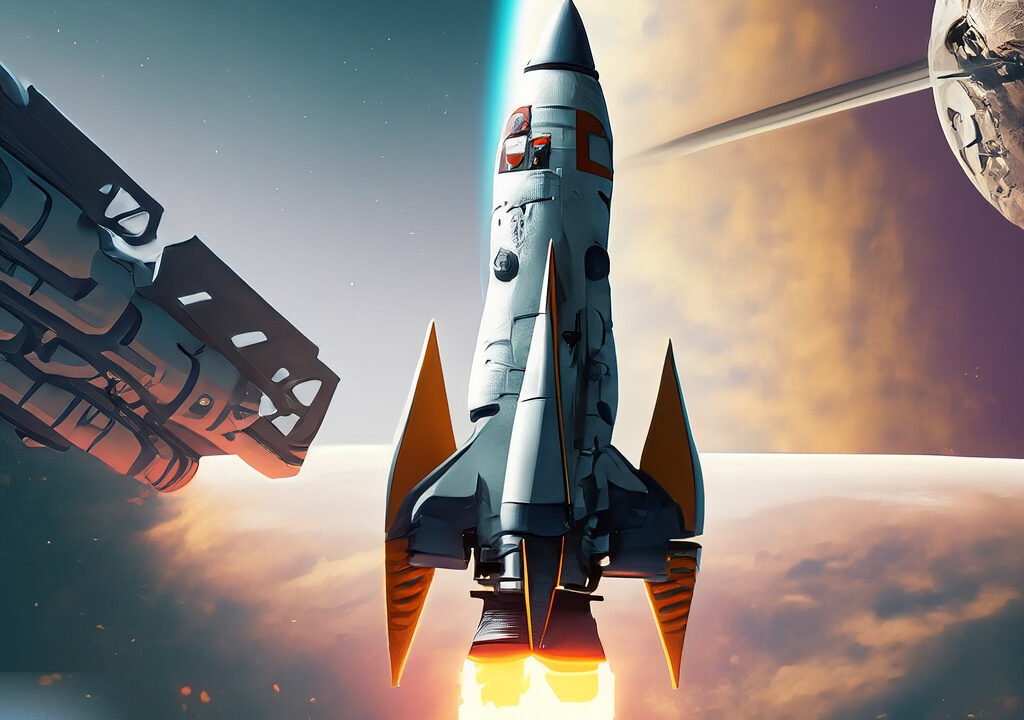“rocket science”
「非常に難しい/複雑なこと」
【例文】
・Figuring out how to use this new app isn’t rocket science, but it still took me a while to get the hang of it.
「この新しいアプリの使い方を理解するのはロケットサイエンスほど難しくないけど、それでも慣れるまでに少し時間がかかった。」
【解説・豆知識】
このフレーズは、文字通りロケット科学に由来しています。ロケット科学は非常に複雑で高度な技術を必要とする分野であり、一般的に難解であるとされています。そのため、「rocket science」は、非常に難しい、複雑な、または理解しにくいことを表します。この表現は、技術や仕事、日常生活での課題など、さまざまな分野で適用される表現です。
【似た表現はコレだ!】
1. not brain surgery(難しくない)
・Fixing a flat tire isn’t brain surgery, so you should be able to do it yourself.
⇒パンクしたタイヤを直すのは難しくないから、自分でできるはずだ。
2. piece of cake(簡単なこと)
・The test was a piece of cake, I finished it in no time.
⇒テストは簡単だったから、すぐに終わらせることができた。
3. no sweat(簡単にできる)
・Don’t worry about the presentation, it’s no sweat. I’ve done this a hundred times before.
⇒プレゼンテーションを心配しないで、簡単だよ。これまでに何度もやったことがあるから。
4. easy as pie(非常に簡単)
・Learning to ride a bike was easy as pie for me.
⇒自転車に乗るのは私にとって非常に簡単だった。
5. a walk in the park(容易なこと)
・Compared to my last job, this new position is a walk in the park.
⇒前の仕事と比べると、この新しいポジションは容易だ。
Rocket science is a highly specialized and technical field of study that deals with the design, construction, and operation of rockets and other spacecraft. The term “rocket science” is often used to describe something that is extremely difficult or challenging, implying that it requires a high level of intellect or expertise.
The origins of rocket science can be traced back to ancient China, where the invention of gunpowder led to the development of primitive rocket technology. However, it was not until the 20th century that rocket science emerged as a distinct field of study, with the development of liquid-fueled rockets that made space travel possible.
One of the pioneers of rocket science was Robert Goddard, an American physicist and inventor who is often referred to as the father of modern rocketry. In the early 20th century, Goddard conducted a series of groundbreaking experiments that demonstrated the feasibility of spaceflight, including the first successful launch of a liquid-fueled rocket in 1926.
Since then, rocket science has continued to evolve and expand, with new technologies and innovations enabling humans to explore the far reaches of space. Today, rocket scientists work on a wide range of projects, from designing rockets and spacecraft for commercial spaceflight companies to developing new propulsion systems and exploring the possibility of interstellar travel.
Comprehension Questions:
1. What is rocket science?
2. How is the term “rocket science” commonly used?
3. What is the origin of rocket technology?
4. Who was Robert Goddard and what contributions did he make to rocket science?
5. What is the current state of rocket science and what are some examples of modern-day rocket science projects?
Answers:
1. Rocket science is a highly specialized and technical field of study that deals with the design, construction, and operation of rockets and other spacecraft.
2. The term “rocket science” is often used to describe something that is extremely difficult or challenging, implying that it requires a high level of intellect or expertise.
3. The origins of rocket technology can be traced back to ancient China, where the invention of gunpowder led to the development of primitive rockets.
4. Robert Goddard was an American physicist and inventor who is often referred to as the father of modern rocketry. He conducted a series of groundbreaking experiments that demonstrated the feasibility of spaceflight, including the first successful launch of a liquid-fueled rocket in 1926.
5. Rocket science continues to evolve and expand, with new technologies and innovations enabling humans to explore the far reaches of space. Modern-day projects include designing rockets and spacecraft for commercial spaceflight companies, developing new propulsion systems, and exploring the possibility of interstellar travel.








